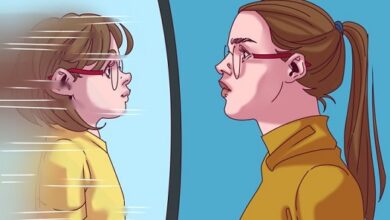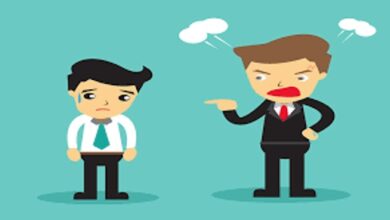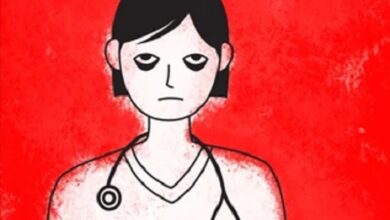How to act in the face of a depression relapse
Relapse is a return of the symptoms and signs of depression. It is very common in people with major depressive disorder, who do not always realize that they are wrong again. Relapses, even if they are mild, interfere with the daily life of those affected and prevent them from appreciating and enjoying life. In this article we will provide you the information about the Depression relapse.
When the person, for whatever reason, begins to think more negatively in a constant and prolonged way (worries, negative thoughts…) depression can return. Following repeated depressive episodes, strong associations with events of daily life form, and this means that even a small trigger, such as a normal drop in mood, can be interpreted negatively and thus become a critical starting point for a relapse of depression. depression.
From this critical point, a spiral of ruminating negative thoughts is triggered, which can gradually lead to a feeling of hopelessness. Feeling desperate then leads to social isolation, to avoiding more and more situations of contact with people. Once old thoughts kick in, often unconsciously, it’s hard to get out of the vicious cycle that triggers a new depressive episode, because it’s often a knee-jerk reaction, just like getting out of quicksand.
More about Depression
Depression is a psychiatric illness that affects more than 17 million Brazilians, according to the Ministry of Health. Seeking medical help for treatment is essential to ensure that the depressive patient regains their quality of life . However, there is little care, since even following the treatment to the letter, the patient may suffer relapses and relapses .
In relapse, the patient worsens during treatment of depression
Some patients and family members of people with depression may be confused by the meaning of these terms. Who clarifies the differences between the two situations is the psychiatrist Marcelo Calcagno Reinhardt: “I consider relapse when the patient has improved, but given a period of response to treatment, it ends up having a worsening”.
Recurrence, according to the professional, corresponds to cases in which the patient shows a good improvement and is discharged from treatment , but returns to depression after a while. Stressful events such as job loss, pressure at work, financial difficulties, divorce, death of a family member and even other illnesses are often responsible for recidivism .
Recurrence can be avoided with a healthier life
To prevent these problems from happening, it’s important to take some measures. “In the case of relapse, therapy, using medication properly, healthy lifestyle habits and physical exercise”, recommends the specialist. The patient should visit the doctor’s office regularly to assess the effectiveness of the treatment and the need for changes in drug dosage and other approaches.
To avoid recurrence , the depressive individual should not abandon treatment before the time indicated by the psychiatrist and should follow a healthy routine, seeking light environments for work and study, adopting sleep hygiene habits , practicing physical activities, eating properly and treating other health problems.
How to act in the face of a depression relapse
Emotions can generate a multitude of sensations. When we are going through a difficult period and the frustrations that we experience during life, we can feel discomfort, both physical and mental, that influence our behavior and thoughts, such as depression. Faced with this disorder, it is important to consider that we cannot leave aside the context of our daily lives, as it directly affects our mental health.
Faced with the difficulties that a disease like depression entails, which relapses are common, it is important to know how to act in these cases.
1. Get therapy
Turning to a mental health professional can provide you with tools to get out of a depression relapse. In the face of this, you can talk about what you feel without fear of being judged , while the therapist devises strategies to help you overcome this relapse.
2. Write
When you experience a relapse of depression, you may feel that your life has no meaning. Furthermore, the idea arises that there is no reason for you to continue living, which can result in self-destructive actions. For this reason, it is essential to put into words what you feel so as not to live with the problem and try to see it from another perspective.
3. Go to a psychiatric appointment
In cases that give rise to considerable gravity, visiting a psychiatrist can be of extremely valuable help. In some cases, the use of antidepressant medications can amplify certain neural connections, linked to the emotional processing of external stimuli. However, it is essential that the intake of psychiatric medication is supervised by a mental health professional.
If you want to better understand how these medications work, in this article we talk about which is the best medicine for depression.
4. Use your support network
How to recover from a depression relapse? In times of frustration and uncertainty, the emotional support of close people is essential . Both family and friends can provide the empathy and support you need. In this way, you will realize that you are not alone, since you can count on other human beings who understand you, which gives you relief and confidence .
5. Consume healthy foods
When a person feels vulnerable in the face of a difficult situation, eating tends to be deregulated. In this sense, if you suffer from a relapse of depression, you may feel like committing excesses or, on the contrary, you may lose your appetite for a long time.
In this sense, to get out of a relapse of depression it is advisable to eat healthy foods that follow a balanced diet of nutrients so that the central nervous system can raise serotonin levels, the hormone linked to happiness. In this other article we give you information about low serotonin, its symptoms and natural remedies to increase it.
6. Practice physical activity
In general terms, sport brings benefits to both the body and the mind. In the face of a relapse of depression, one of the best recommendations is that you do some physical activity that you enjoy. In this way, you will reduce the impact of depression, due to the fact that movement can be a factor that decreases the intensity of thoughts.
7. Resort to art
Although it seems like something without a very clear meaning, carrying out activities with artistic purposes helps to combat relapses of depression. Art is a way of expressing emotions , as it allows us to bring out those internal sensations that cause discomfort. Therefore, any artistic form causes body and mental relaxation.
8. Practice mindfulness
Mindfulness is a practice that is performed to focus attention on the present moment and remove the importance of other thoughts.
If you suffer a relapse of depression, it is common to have ideas that take a toll on your mood. In addition, mindfulness has been proven to reduce stress and anxiety levels , as it relaxes the Central Nervous System and favors a feeling of calmness in the mind.
9. Understand the moment as a passing state
People with depression who suffer relapses tend to believe that these states will last for a long time. This brings about several intense feelings of uneasiness and anguish that can settle permanently. For this reason, to get out of a depression relapse, it is important to understand the moment as a passing state that will not be permanent. This will allow you to change the focus of the situation .
10. Talk to people you trust
Talking to someone about your deep emotions allows you to connect with yourself . When this happens, it is possible to change the point of view of situations that happen in your daily life. Still, to prevent a depression relapse it is important to change your tendency to view the situation from a negative perspective.
11. Swap blame for responsibility
Blame and responsibility are not the same. Guilt is the feeling that appears when a person believes he has done something bad, while responsibility is the fact of getting involved with something that happened. People who suffer relapses of depression think that they are to blame for what happens to them, which results in anguish that does not resolve the situation.
In exchange, responsibility makes it possible to think of other alternatives to resolve conflicts . That way, to avoid a depression relapse, don’t feel guilty and be responsible to face whatever comes. In this article you will see how to deal with the feeling of guilt.
12. Have self-respect
Someone who suffers from a depressive disorder may deny personal characteristics that are part of him. This produces a permanent malaise that prevents you from taking advantage of life’s daily situations. For this reason, working on improving your self-esteem and increasing your self-esteem will allow you to value yourself more and achieve the goals you have set for yourself .




